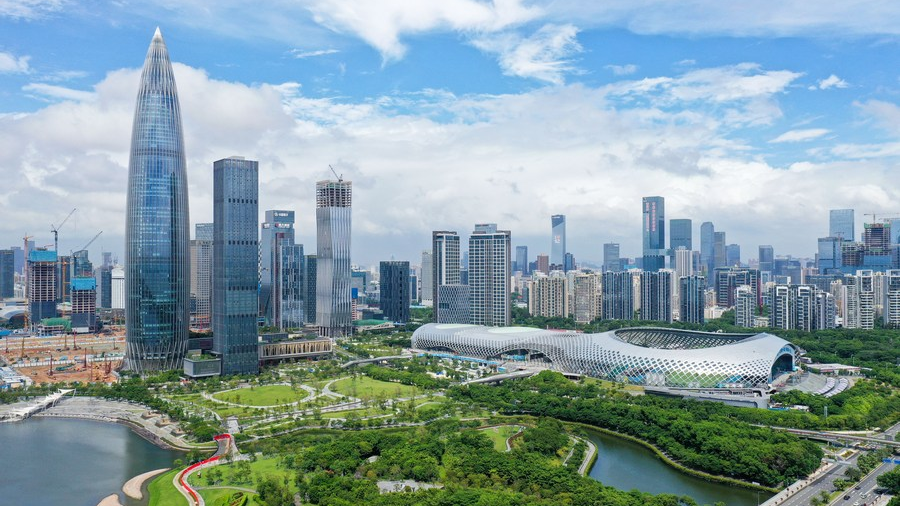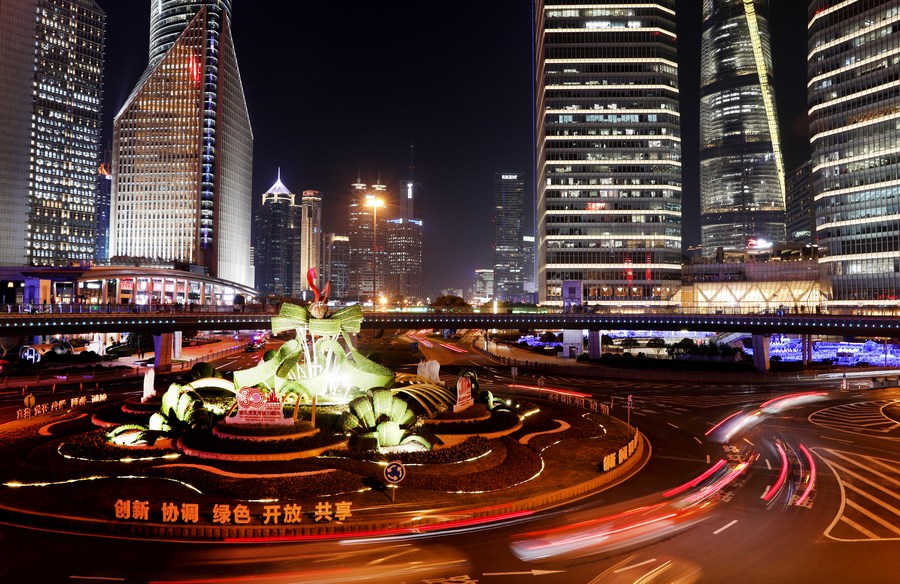
The Houhai area in Nanshan District of Shenzhen, south China's Guangdong Province, September 17, 2020. /Xinhua
The Houhai area in Nanshan District of Shenzhen, south China's Guangdong Province, September 17, 2020. /Xinhua
Editor's note: Ismail Bashmori is an Egyptian observer who lives in Toronto, Canada. This is a shortened version of the author's original article. The article reflects the author's opinions and not necessarily the views of CGTN.
As an Egyptian observer, I have been studying about China for the past year – its government, society, history and transformation – and have talked with hundreds of Chinese and China-haters for the past three months. I have seen the great achievements of China, together with the hate and fear of some Western politicians.
China's story since the 1980s has been one of an almost divine metamorphosis. The country has ended extreme poverty, taken the lead in the world's 5G network rollout, launched three astronauts to its new space station core module, landed its Zhurong rover on Mars …
China is developing. Is it a problem?
Some Western countries hate and fear the rapid development of a country that once was weak. They can't believe their 400-year-old global supremacy is being challenged. That's why, although the United States has killed millions of people and screwed several regions in the past 30 years, your television, newspapers, Google news feed and social media are all 24/7 condemning China, which has not sanctioned any country or overthrown any foreign government. None of the accusations made by Western politicians and media are backed up by evidence.

A night view of Lujiazui in Pudong of east China's Shanghai, January 14, 2021. /Xinhua
A night view of Lujiazui in Pudong of east China's Shanghai, January 14, 2021. /Xinhua
China is not affected by the noise and maneuvers of her enemies. What's going on now, the stupid "new Cold War," is nothing. For her first 20 years, from 1949 to 1971, China was basically blockaded and isolated economically and politically by the West. It didn't have a seat in the UN General Assembly. And it was dirt-poor in those days, barely a speck of the global economy – not even able to prevent famine. And it still didn't submit to pressure or take any orders from foreign countries. Why on earth would it do that now?
Some countries seem quite "warm-hearted" on "leading" others. As Jimmy Carter pointed out, the U.S. has enjoyed only 16 years of peace in its more than 240-year history. Besides the four large wars in Korea, Vietnam, Iraq and Afghanistan, the U.S. has also invaded Lebanon, Dominican Republic, Grenada, Panama, Somalia, Bosnia, Haiti, Kosovo, Libya, Uganda and Syria.
Aren't you at least curious to see what a world might look like without the leading actions of any warlike nation in the future?
Imagine a world where the U.S. and Australia are no more important than Uzbekistan or Paraguay. A world where the International Court of Justice might be headquartered in Kuala Lumpur, the World Bank in New Delhi, the United Nations in Jakarta, the International Monetary Fund in Cairo. A world liberated from the U.S. banking system and the dollar as its reserve currency so that Washington can no longer tell 200 other countries who they can and can't trade with. A world where no country can escape from war crimes and no one has to escape from their hometown.
I see China as hope. Hope that a colonized, brutalized and humiliated country can rise above its past – refuse to be weak any longer – rebuild itself from nothing with iron resolve and become too strong to be overrun by the West aggressors again. I hope that a non-Western country can find its own solutions to its problems, proving that relying on the "leading" and interference from the West is unnecessary and sometimes even stupid.
(If you want to contribute and have specific expertise, please contact us at opinions@cgtn.com.)

